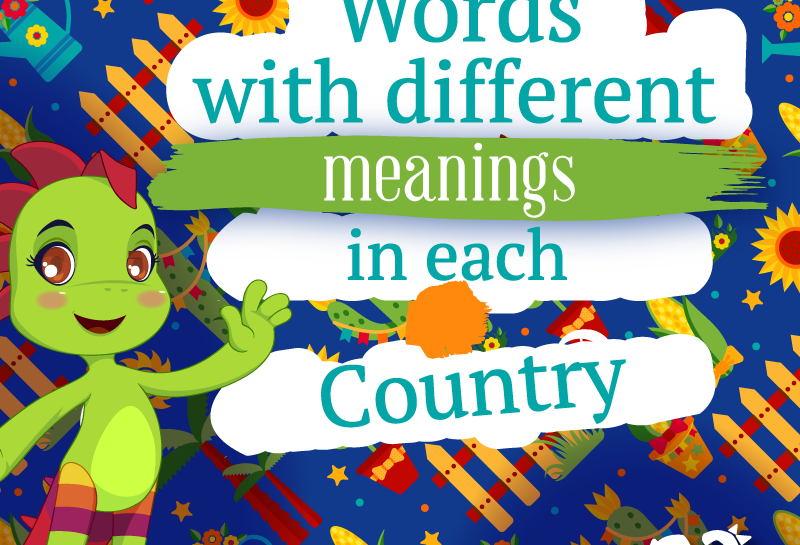Long Live the Spanish Language! Words with Different Meanings in Each Country
To love our language is to love who we are. Today we will share three things your children can reaffirm when you cultivate your love for the Spanish language at home:
Question of Identity
Although we share the same language, the truth is that in every country (even in cities), the same words can often mean two different things. That makes us unique, as we share the same code. And when two Latinos from the same country come together, they can practically handle a different language. Knowing where we come from and how we speak in our country of origin helps us build our identity.
Question of Belonging
It is not only a matter of who we are, but also of where we belong. It is very important for our little ones to feel as though they belong to a group with which they identify. This favors their ability to connect with others and understand that there is a world beyond them involving their most transcendental purposes. Knowing where we belong helps us develop social sensitivity. Moreover, belonging helps us work on our empathy, kindness, and ability to cultivate love for others.
To Love Our Language Is to Love Who We Are
If we identify with a specific social group, we may find it easier to understand certain aspects of ourselves. Loving our language and our roots is a wonderful way to learn to love ourselves. Cultivate your children’s self-esteem by making them proud of their language and identity. And something super-curious about the Spanish language is that sometimes we hardly understand one another. How is it in your country?
When you go to the movie theater, do you ask:
- Cotufas
- Palomitas de maíz
- Pochoclo
Your favorite fruit is:
Cambur or banana?
Cambur or banana?
In some countries: Cut a “torta” or “pastel.”
In Mexico, “torta” is a type of sandwich.
In Venezuela, a “Pastel” is a food made of wheat flour stuffed with meat or chicken.
Tell me how it is in your country.

